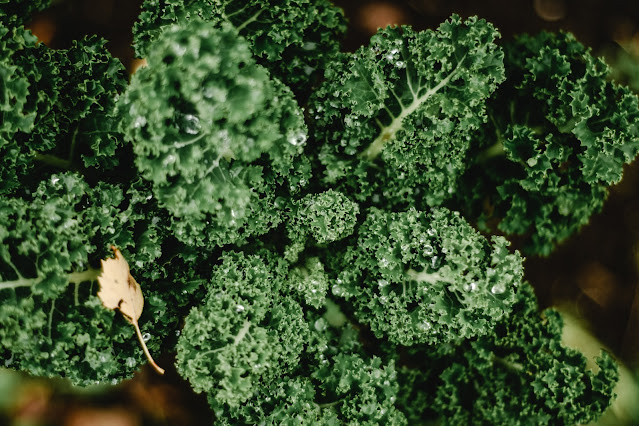When it comes to nourishing our bodies and promoting overall well-being, Mother Nature has provided us with a treasure trove of nutrient-packed options. Among these, the concept of "most nutrient dense vegetables" has gained immense popularity in recent years, and for a good reason. These powerhouse veggies are brimming with essential vitamins, minerals, and phytonutrients that can significantly impact our health. In this comprehensive guide, we'll delve deep into the world of the most nutrient dense vegetables, exploring their benefits, nutrient profiles, and how they can enhance our health.
The Importance of Nutrient Density:
Before we dive into the list of the
most nutrient dense vegetables, it's crucial to understand what "nutrient
density" means. Nutrient density refers to the ratio of essential
nutrients (such as vitamins, minerals, and antioxidants) to the number of
calories in a food item. A higher nutrient density implies that a food is rich
in vital nutrients while being relatively low in calories. This is key to
maintaining a balanced and healthful diet.
What Are the Most Nutrient Dense Vegetables?
So, which vegetables qualify as
the "most nutrient dense"? Let's explore the top contenders:
1. Spinach
Spinach is often hailed as one of
the most nutrient dense vegetables, and it deserves the praise. Packed with
vitamins A, C, and K, as well as essential minerals like iron and folate,
spinach is a nutritional powerhouse. Its antioxidant content, including lutein
and zeaxanthin, can promote eye health and reduce the risk of chronic diseases.
2. Kale
Kale is another green leafy giant
in the world of nutrient density. It's rich in vitamin K, vitamin C, and offers
a significant dose of fiber. Furthermore, kale is known for its exceptionally
high levels of antioxidants, making it a powerful anti-inflammatory food.
3. Broccoli
Broccoli is a cruciferous
vegetable with an impressive nutrient profile. It's loaded with vitamin C,
vitamin K, and contains potent antioxidants like sulforaphane. Broccoli is
linked to a reduced risk of chronic diseases, including certain types of
cancer.
4. Brussels Sprouts
Brussels sprouts may not be
everyone's favorite, but they are a nutritional powerhouse. They are high in
vitamin K, vitamin C, and fiber. Moreover, they contain compounds that support
healthy digestion and gut health.
5. Swiss Chard
Swiss chard is a leafy green
that's rich in vitamins A, K, and C. It also provides essential minerals like
magnesium and potassium. Its antioxidant content can contribute to reducing
oxidative stress.
The Nutritional Benefits of Most Nutrient Dense Vegetables
Now that we've identified some of
the most nutrient dense vegetables, let's explore their specific health
benefits in more detail:
Improved Heart Health
Many of the most nutrient dense
vegetables, such as spinach and kale, are rich in potassium and fiber. These
nutrients help regulate blood pressure and reduce the risk of heart disease.
Additionally, their antioxidant properties can prevent the oxidation of LDL
cholesterol, which is a key factor in heart disease.
Enhanced Digestive Health
Fiber is a common denominator in
most nutrient dense vegetables. It promotes healthy digestion, prevents
constipation, and may reduce the risk of developing gastrointestinal issues.
The compounds found in Brussels sprouts can also support a balanced gut
microbiome.
Antioxidant Power
Antioxidants are essential in
protecting our cells from damage caused by free radicals. The abundance of
antioxidants in these veggies, such as broccoli's sulforaphane and spinach's
lutein, can play a significant role in reducing the risk of chronic diseases,
including cancer.
Stronger Bones
Certain nutrient dense
vegetables, like Swiss chard, are excellent sources of vitamin K and calcium,
two vital nutrients for bone health. Vitamin K is particularly important for
bone mineralization and can help prevent osteoporosis.
Incorporating Most Nutrient Dense Vegetables into Your Diet
Now that we understand the
incredible health benefits of the most nutrient dense vegetables, the next
question is: how can we incorporate them into our daily meals? Here are some
tips:
1. Smoothies
Green smoothies are a popular way
to consume nutrient dense vegetables like kale and spinach. Blending them with
fruits and a liquid of your choice can create a delicious and nutritious
beverage.
2. Salads
Salads offer a versatile platform
for incorporating various nutrient dense veggies. Create colorful salads with a
variety of textures and flavors by mixing different greens and adding nuts,
seeds, and lean protein sources.
3. Sautéing and Roasting
Sautéing or roasting vegetables
like Brussels sprouts and broccoli with a touch of olive oil and your favorite
seasonings can enhance their flavor and make them more appealing to picky
eaters.
4. Snacking
Cut up raw vegetables like
carrots, bell peppers, and cucumber for a convenient and healthy snack. Pair
them with hummus or a yogurt-based dip for added flavor.
Conclusion
In conclusion, the world of
nutrition is continually evolving, but the importance of incorporating the most
nutrient dense vegetables into our diets remains constant. These vegetables
offer a wide range of health benefits, from improved heart health to stronger
bones and enhanced digestive well-being. By making these nutrient-rich
powerhouses a staple in your diet, you can take a significant step towards
achieving and maintaining optimal health.
So, if you're looking to boost your nutrient intake and improve your overall health, consider making the most nutrient dense vegetables a vital part of your daily meals. Your body will thank you for it, and you'll soon discover the many rewards of embracing these natural wonders.











0 Comments